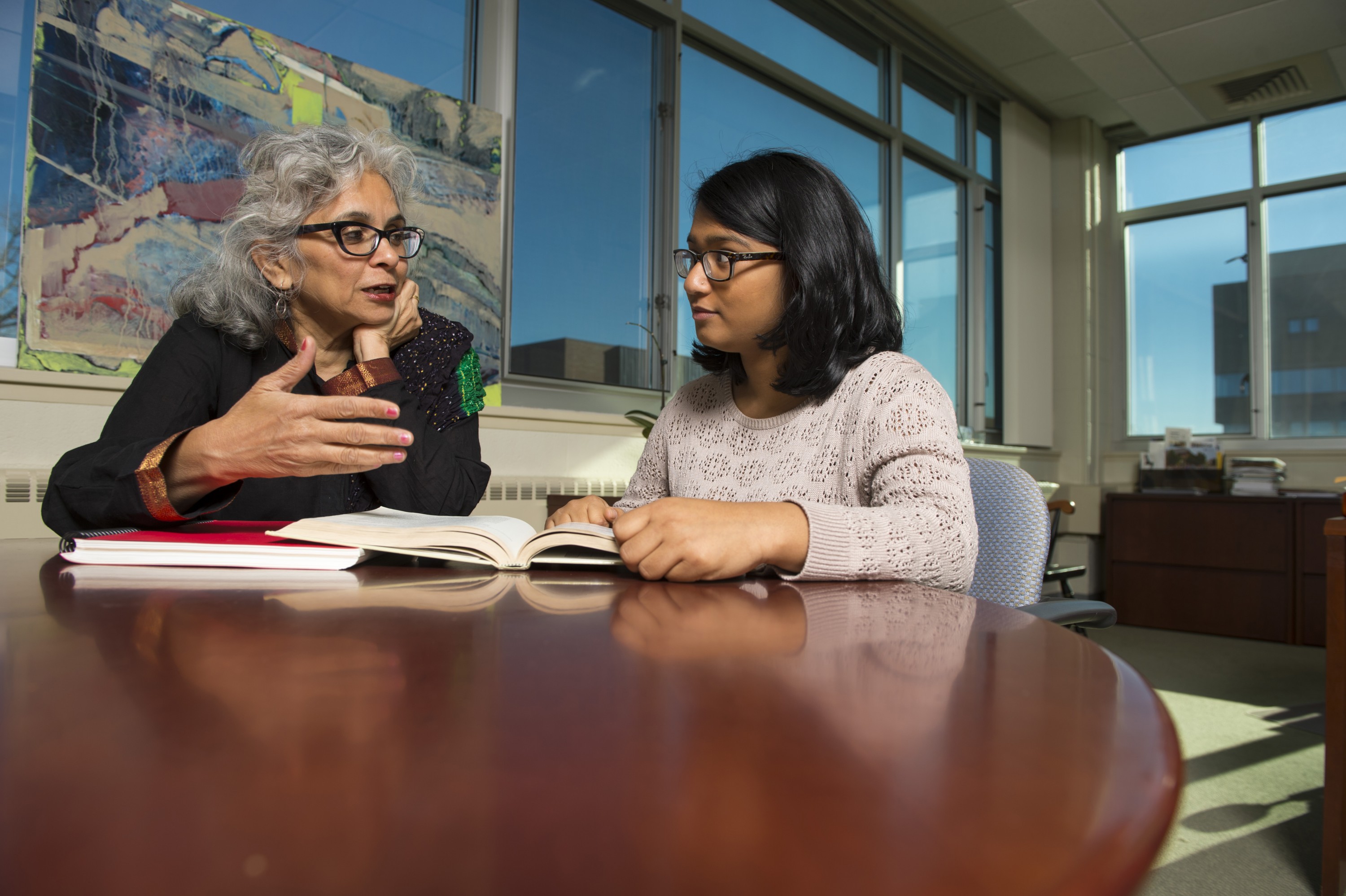Asahi Hoque ’16 (CLAS) has important questions about the scope of women’s health care in developing countries. She is concerned that an over-emphasis on reproductive care means that the broader health care needs of women are neglected.
Hoque was awarded a UConn IDEA grant to pursue her ideas, and she traveled to Dhaka, the capital of Bangladesh, to find out more.
Hoque was born in Bangladesh, and has been volunteering for human rights agencies for several years. As a freshman, she traveled to her native country, where she took part in developing a program to support adolescent girls and pregnant women.
The molecular and cell biology and human rights double major used her IDEA grant to fund a return trip to Dhaka, which she took as a case study for her research on women’s health.
“The IDEA grant definitely gave me the opportunity to explore my idea,” Hoque said. “As much internet and literature research that I could do, it wouldn’t have been the same as talking to the people actually involved in women’s health in Bangladesh.”

The IDEA grants program is designed to provide undergraduates with the opportunity to develop creative and personally meaningful projects. As a part of the application process, students must explain the inspiration behind their idea, as well as what they hope to learn from their potential venture.
Since Bangladesh became independent in 1971, many successful health care programs have been created. But an emphasis on reducing population rates and decreasing maternal mortality among international organizations that supported many of those programs led to women’s health care services being focused on reproductive health care. Women still have little access to other forms of health care. Hoque says that there are also many social issues, including poverty and gender inequality, that affect women’s access to health care services in Bangladesh.
“Maternal health is definitely necessary and important,” she says, “but why do global health care organizations only care about women’s reproductive health, and not their health overall?”
In Dhaka, she spoke with people who were involved in developing policy, facilitating health care services, or organizing women’s health programs. She asked them about their perceptions of women’s health; how different healthcare organizations develop new programs; and why they believe them to be beneficial to women.
Hoque says the focus on maternal health and reducing maternal mortality benefits children’s health and national development, but she sees a need to keep women’s general health in mind.
She says that there is a lot of literature and historical evidence that the society regards women as inferior, and that this reinforces an emphasis on women as reproducers rather than as people. This exacerbates the health issues experienced by women, including detecting, preventing, and treating other diseases and illnesses that are not seen as a priority.
She says that, based on the answers given by people she interviewed, it is clear that women’s health is important and that many resources are provided in Bangladesh. But because international organizations stress reproductive health, non-governmental organizations (NGOs) in Dhaka fall into this same pattern, which results in limitations on women’s access to health care.
Hoque wants to increase the dialogue surrounding what women’s health care should include. She hopes to continue studying international health programs, policies, and global health care facilitators.
“I got to meet amazing people from [Bangladesh-based development organizations] and the Ministry of Health, and they provided such wonderful insights as well as great understanding of what they or their organization thinks of women’s health,” Hoque said. “Without the IDEA grant, I definitely wouldn’t have been able to do that.”
She said the IDEA program has been extremely supportive, especially in the development of her project, planning of her trip, and overall encouragement.
After graduating in May, Hoque will go to graduate school to earn her MD/MPH. She she hopes to eventually work in the field of global health, combining the skills from her double major as well as her minors in women’s, gender, and sexuality studies and political science. No matter where she works, she says she will always advocate for the right to health for all.



